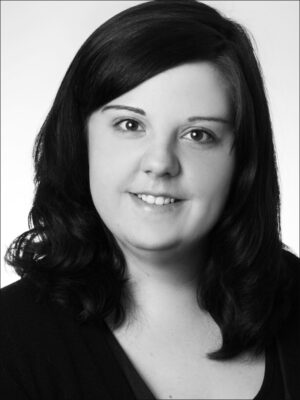Equal opportunities
For the Research Center for Normative Orders at Goethe University, questions of gender and diversity equality are part of the academic program, but also a structural task. Family friendliness, gender equality and diversity policies are seen as indispensable features of the development of excellence in research and the promotion of early career researchers. This is not only about enabling participation and preventing discrimination of all kinds, but also about recognizing diversity as a great intellectual and creative potential – especially with regard to the international orientation of the association.
Women’s network
Gender equality issues are consistently integrated into strategic, personnel-related and financial decisions at the center. This takes place via the women’s network of all employees, which is anchored in the statutes and whose coordinator is a voting member of the Board of Directors, meaning that she can act at the highest management level of the association not only in an advisory capacity, but also with decision-making authority.
Compatibility of career and family
Despite increased efforts by universities to reconcile work and family life, there are still great difficulties, especially for young academics, in combining academia and family life. The dual challenge of managing family responsibilities, especially childcare, and focusing on an academic topic becomes a major hurdle for young academics; family work often leads to disadvantages for academic careers, especially for mothers.
The compatibility of work and family is, alongside equality, formulated as a priority goal in the statutes of the Research Center for Normative Orders. The Center seeks to use the options available to it within the framework of its institutional possibilities to provide researchers with the best possible support in the often difficult coordination of work and family life. On the one hand, it provides infrastructural, financial and advisory assistance with childcare. The Center also participates in Goethe University’s Dual Career Service, in the conviction that the reconciliation of academic career and family is often only possible with the mutual support of two partners.
Parenthood
Parenthood is often seen as an obstacle to an academic career (Krempkow/ Sembritzki 2017); conversely, the long academic qualification phase, which is usually characterized by the economic insecurity of fixed-term employment contracts, makes taking on responsibility for a child appear risky. Two consequences are discussed: on the one hand, a relatively high rate of childlessness among early-career researchers is observed; on the other hand, there is also a tendency toward an early decision against pursuing an academic career.
In the conviction that both consequences ultimately represent a loss of diversity—and thus of intellectual potential—for academic institutions, the Research Center “Normative Orders” seeks to establish a family-friendly research environment. The Center is committed to supporting mothers and fathers in balancing academia and family life.
Counseling:
- In cooperation with the Family Service and the Human Resources Department of Goethe University, we offer public information sessions for (expectant) parents.
- In addition, (expectant) parents can contact the Family Service counseling office at any time. The Family Service coordinates, among other things, the allocation of daycare places in one of the university’s own childcare facilities. For more information on the Family Service of Goethe University: here…
Family-Friendly Facilities at the Research Building:
The Center’s building provides:
- a nursing and rest room
- diaper-changing facilities
- a parent-child office
If regular childcare is temporarily unavailable, members of the Research Center have the option of bringing their children along and supervising them on site. The parent-child office is equipped with a variety of play options as well as a fully functional workplace. (Staff members of the Center can register for use of the room at the administration office.)
Childcare:
During conferences and workshops organized by the Research Center, we offer on-site childcare in cooperation with AWO, upon prior registration.
Dual Career
The aim of the Research Center’s equal opportunity measures is to provide support so that the professional careers of researchers do not come into conflict with their private life plans. In order for parenthood to be lived as a shared responsibility, to avoid constant commuting, and to enable family life, newly arriving researchers often move to the Rhine-Main region with their families.
To ensure that such a move does not mean giving up all career opportunities for the partner of the researcher, targeted support is necessary to open up professional perspectives in the region for them as well. The Research Center therefore works closely with the university’s Dual Career Service, whose mission is to make it easier for newly arrived researchers and their families to settle in at Goethe University and in Frankfurt. Beyond the regular services of Goethe University, the Dual Career Service is available not only to newly appointed professors but also to the early-career researchers of the Research Center.
The Dual Career Service offers:
- Support for partners of newly arrived researchers in their job search and professional orientation
- Advice and assistance in the application process (e.g., feedback on application documents, letters of recommendation)
- Guidance on opportunities for further education and training
- Support in finding childcare facilities and schools, in cooperation with the Family Service of Goethe University
- Assistance in the search for housing
Diversity
The Normative Orders Research Center strives to create a research environment in which a non-discriminatory approach to heterogeneity is a matter of course. The aim is to design all structures and processes, such as the selection of new employees, in a diversity-friendly manner so that people have the same opportunities for access and success, regardless of their socio-economic and cultural background, their age, sexual orientation and gender identity, their religion and world view or whether they experience a physical or mental disability or care for other people. The Center views diversity as a great intellectual and creative potential.


